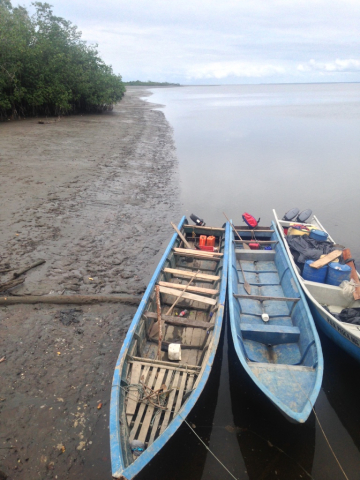Tropical Small-Scale Fisheries (TSSF)
Concerns about the sustainability of TSSF have been raised due to declining trends of total catch and catch-per-unit-effort. The data-poor, multi-species and multi-gear nature of TSSF demands a holistic approach that accounts for potential fishing impacts on the ecosystems and that acknowledges the complexity of social-ecological systems. Using the Colombian Pacific coast as a case study area, this project develops a comprehensive assessment including: a) analyses of stock condition of main target species through novel methodological tools, b) evaluation of ecological indicators of the catch as proxies of potential ecosystem impacts of TSSF, and (c) the exploration of socio-economic drivers of fishing gear choices made by fishers.
Management priorities
Three priorities to improve management of TSSF are drawn from the results.
First, to increase the reliability of stock assessments:
- fisheries data collection systems should be adjusted based on fishing effort, and
- fisheries selectivity must be estimated to correct length-frequency catch data prior to analysis
Second, adoption of basic ecological indicators as part of fisheries monitoring will enable consideration of ecosystem impacts of fishing during decision making. Third, investments in strengthening the social capital of coastal communities and consideration of local socio-economic and cultural contexts, will increase viability of management actions. These management adjustments could facilitate the path towards sustainable TSSF in the world.
International Project Partners |
|---|
|
National Fisheries and Aquaculture Authority of Colombia (AUNAP) MarViva Foundation |





